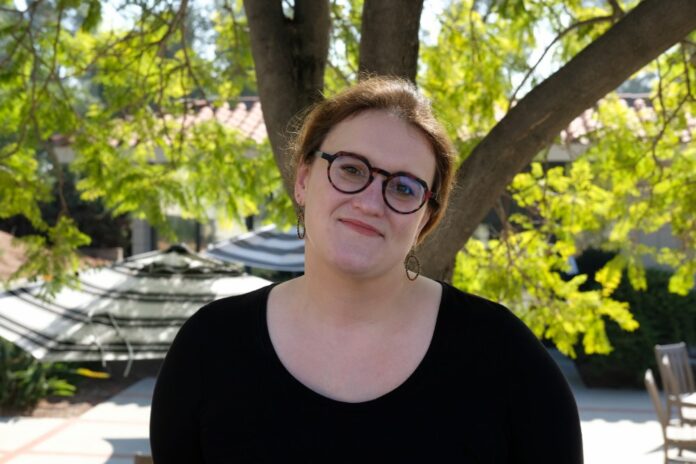
Content warning: This article contains discussions of sexual assault on college campuses.
Occidental College released a Sexual Assault Campus Climate Survey Oct. 29. Oxy Sexual Assault Coalition (OSAC) shared a statement of opposition to the survey Nov. 2, citing triggering language and a lack of consultation with survivors on the survey. According to Title IX Coordinator Alexandra Fulcher, the survey intends to gather data on the extent of sexual assault and misconduct on and off campus and gauge the Title IX office’s accessibility to students.
“OSAC believes that this survey is not survivor informed, and is unnecessarily triggering. This survey will not yield informative or accurate campus climate results if survivors may feel unsafe participating,” the coalition posted in an Instagram statement Nov. 2.
According to one member of OSAC,* many students felt triggered by the language and dehumanizing nature of questions in the survey.
“The language [in the survey] is pretty cold and clinical because of the fact that in order to make comparisons between campuses, it needs to kind of be within those legal definitions of certain terms,” the member of OSAC said. “I think that’s why people have said it’s been triggering. And I agree, I don’t think it was very well done.”
According to Fulcher, the survey is created and administered through a third-party consortium called the Higher Education Data Sharing (HEDS) to protect privacy and preserve the anonymity of respondents. Fulcher said the college cannot change the set of prewritten questions from HEDS, but does have the ability to add questions.
“There was a working group that met over the summer to work on the climate survey and to determine which instrument to use, assess the additional questions and the timing of when to release the survey,” Fulcher said. “Initially both [Project SAFE and OSAC] were a part of the working group. Then Marianne [Frapwell], who was the former survivor advocate, left [the college] and the OSAC member graduated.”
According to Fulcher, students’ responses to the Campus Climate Survey this year may lead to alterations to the survey questions in the future by the Campus Committee on Sexual Responsibility and Misconduct.
“If we continue to do climate surveys in the future, [we may] assess alternate options for surveys or decide whether a home-grown Oxy survey would be more appropriate,” Fulcher said.
The release of the survey coincided with the end of Project SAFE’s Empowerment Week. According to Project SAFE Manager and Survivor Advocate Tirzah Blanche, this was coincidental and the survey was not associated with Empowerment Week.
“I think we need to go back to HEDS and let them know the phrasing and the questions are not working,” Blanche said. “Survivors need to be more involved in decisions like this, so that they feel comfortable. We want survivors to take the survey because those are the people that are most impacted. But not at their own detriment.”
Fulcher initially sent out the survey. President Harry J. Elam Jr. sent an email reminding students to complete the survey Nov. 1. The email also included steps Occidental plans to take to better meet the needs of the Title IX office and Project SAFE.
The member of OSAC said the timing of the survey’s release, within the same week as Empowerment Week, did the opposite of fostering a supportive environment on campus and building trust with survivors.
“The [survey] leads toward the broader demands that we have geared toward administration,” the member of OSAC said. “How can we foster a community where survivors feel like they have a place where they’re not going to be re–triggered at any given moment?”
OSAC shared a formal list of demands with the student body Nov. 4.
“Occidental College must make a genuine, concerted effort to make sexual assault prevention and survivor support accessible to Occidental students — beyond affluent white cis students,” OSAC wrote in the list of demands.
The list of demands include expanding the college’s sexual assault prevention and survivor support staff, expanding and updating trainings and improving language and accessibility to information. The list calls for improving Emmons Wellness Center’s sexual trauma response, developing residential advisor (RA) survivor advocacy training and creating an informal campus safety alert system to report sexual assault to the student body.
Blanche posted stories on Project SAFE’s Instagram page Oct. 29 to reach out to the student body directly, and said they are available to connect students to resources and support, or to provide a confidential space for students to vent.
“I am here to support survivors and what I’m hearing from survivors is that the survey is harmful for them,” Blanche said. “Clearly [the survey] was not executed with the amount of care that needed to be.”
According to Fulcher, those who feel triggered or experience any difficulty taking the survey can reach out to a variety of organizations and people for support, and can look at the original email for a list of campus, local and national resources.
OSAC is planning a demonstration Nov. 12 to raise awareness about sexual assault and demand more resources for students. The demonstration will take place from noon to 3 p.m. starting at the Arthur G. Coons Administrative Center (AGC) steps.
Emmons 24/7 Confidential Hotline : (323) 341-4141
The Project SAFE/Survivor Advocate office located on the bottom floor of Stewart-Cleland Hall
Survivor Advocate: survivoradvocate@oxy.edu
Oxy Sexual Assault Coalition: oxysexualassaultcoalition1@gmail.com
*The Occidental has omitted the student’s name in accordance with our anonymous source policy. For more information on anonymity, visit our Frequently Asked Questions.
This article was revised Nov. 10 at 8:30 p.m. to clarify Occidental’s actions towards meeting OSAC’s list of demands with President Elam’s Nov. 1 email. It has been clarified that the Nov. 1 email included a reminder and addressed changes that had been made since the first email.
![]()






























